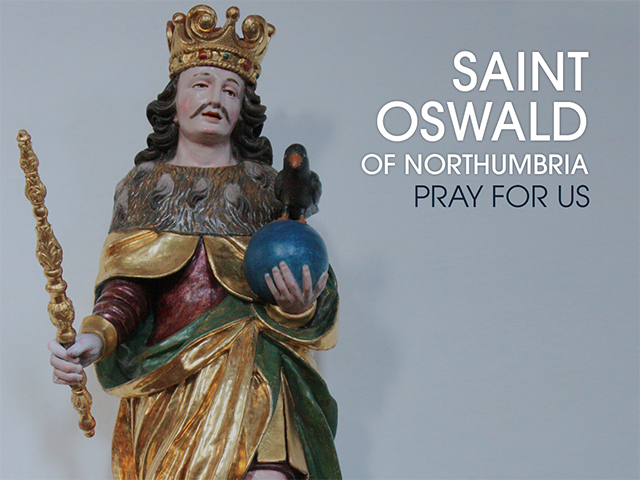



St. Oswald (605-642 A.D.) was the second of seven sons born to the pagan king of Northumbria in northern England. After his father was killed in battle, the kingdom was split. His uncle claimed the throne, while Oswald fled with his mother and brothers to Scotland for safety. There his family was converted to Christianity by the renowned monks of Iona. Oswald was educated by the holy monks and grew into a brave and pious warrior. After the death of his uncle and elder brother, Oswald moved to reclaim his father's throne and liberate it from enemy rule. On the eve of a decisive battle, he received a vision of St. Columba who promised him success. Before battle, Oswald erected a cross and knelt before it in prayer, along with his army. Following his victory, St. Oswald reunited Northumbria and was made king. His influence as a monarch was so great that he was considered the Emperor of almost all of Britain, uniting the the Britons, Picts, Scots, and the English. He requested a bishop to be sent to his kingdom to aid in the conversion of his people to Christianity; he also invited St. Aidan and a group of Irish monks from Iona to found a monastery for the kingdom at Lindisfarne. This ushered in Northumbria's "golden age" as the most important centre of learning and arts in the British Isles. Oswald ruled as a saintly and powerful Christian king, in justice, humility, and generosity to the poor and strangers, as noted by the prestigious historian, the Venerable Bede. St. Oswald was killed in battle, and afterwards the place of his death was noted for many miracles. His feast day is August 5th.